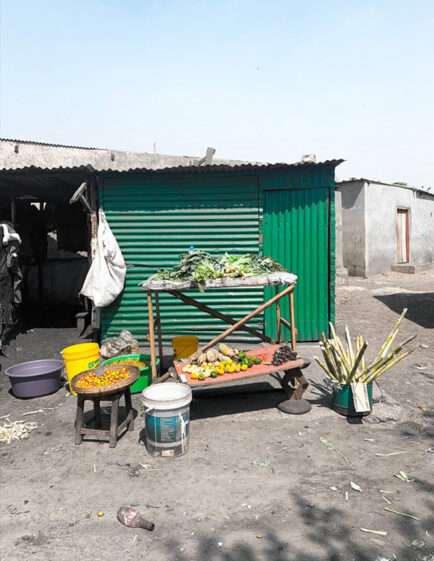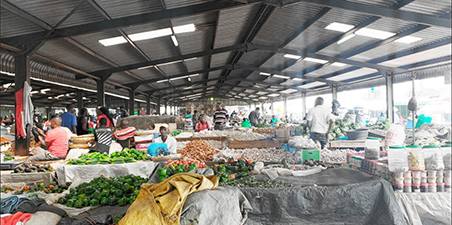You are kindly invited to join us for a Summer School in Lusaka, Zambia from 31 July to 8 August 2023!
Introduction
Urbanisation in Sub-Saharan Africa is not only unique in the speed at which it is occurring, but is associated with processes and forms of urban development that pose new challenges to all disciplines concerned with the built environment. The summer school ‚Mapping Urban Resilience’ brings together students from different universities and disciplines in Zambia with students and teachers from the MSc Architecture and Urban Planning and MSc IUSD at the University of Stuttgart to address the complex contexts of this urban transformation.
In Lusaka, the capital of Zambia, about 62% of the people live in informal settlements. One of these is Kanyama, which has existed since the 1960s and continues to grow daily due to internal migration, but also migration from neighbouring countries. Today, about 1.4 million people live there in a very small area, and although Kanyama was formalised in the 1990s, most of the people are not connected to the urban supply system. At the same time, people describe Kanyama as a place of opportunity to build a life in the city, a place where people flexibly adapt to ever-changing circumstances and constantly tap into new resources. This is where the concept of “community resilience” comes in, which is the main content of the summer school. The goal of making cities resilient for the future is not only anchored in the Sustainable Development Goals (SDGs), but is also an integral part of any urban development discussion. In order to understand where urban policy and planning need to start in order to make Africa’s fast-growing urban agglomerations a sustainable place to live, the local conditions must first be understood. Urban dwellers in Africa are characterised by their adaptability and flexibility (Ammann and Förster 2018), with which the city is produced and changed again and again. In order to create new opportunities for themselves and others, despite all the challenges. Resilient places under the sign of African urbanisation have characteristics that, if ignored in planning, can have serious ecological and social consequences (Baron 2021). It is therefore important to improve people’s living conditions and at the same time strengthen existing skills, resources and networks.
Summer School description, aims and collaboration partners
In the summer school, the possibilities for local resilience are to be surveyed and discussed in a participatory manner. In a first step, the students will deal with urbanisation in the Global South and in Zambia, the relationship between formal urban planning and informal settlement growth, as well as the associated tasks for planning and research, based on input lectures by the teachers from Stuttgart and local experts. They will be familiarised with the concept of resilience and its different applicability and will be provided with methods for field research. Working in groups, the students then spend several days on field research, where they investigate the socio-spatial structure of the settlement using a mixture of social science and cartographic methods. Data collection is done accordingly with the help of observation, interviews, walk-alongs and mapping. It is essential that knowledge and exchange between the students and the residents of the settlement on the one hand, and in discussion with local organisations and initiatives on the other hand, is generated.
The aim of the summer school is to develop an interactive co-productive format in Zambia itself. The summer school will be leading up to studio projects open for MA IUSD, MA Arch+Planning + BA in the Winter Semester of 2023-2024. The collaboration with local residents and actors as well as students from the University of Zambia (UNZA) is essential. Group work in transdisciplinary and multinational teams enables a change of perspective that expands the discussion on urban planning methods and global objectives. Students will learn to critically classify social processes. The workshops, in which the students are in direct exchange with local actors will enable them to try out participatory methods. These are then critically examined and can be integrated into future teaching formats. At the same time, these students, as future urban designers, have access to practical knowledge.

Above: Livelihood – Kanyama informal settlement in Lusaka
Teaser image: Soweto Market Lusaka
Source of both images: Shaharin Annisa, 2021
Summer School in Lusaka, Zambia
31st of July – 8th of August 2023
Mapping Urban Resilience
Collaboration with: University of Zambia (UNZA), Institute of Planners Zambia,
Funded by DAAD, Stuttgarter ChangeLab
Estimated costs
The costs of the trip are to be primarily borne by the students (a certain amount of compensation is planned for more information will be provided during the info session).
Flight costs – ca 1,100 €
Accommodation – 200 – 250 € (recommendations will be provided by the organizing team)
Other costs (food, transport) – 100 – 150 €
Motivational Letter
If you are interested in applying to the summer program, please send us a 500-word motivational letter addressing the following points.
– Why do you find this summer school intriguing?
– Do you have prior experience with the subject or context? If yes, please provide specifics; if no, please elaborate on your interest.
– Do you intend to attend the Lusaka Studio, which is associated with this summer school and will be conducted during the Winter Semester 2023-2024?
Please submit the motivational letters to the following email address latest by the 31st of May, 2023.
shaharin-elham.annisa@si.uni-stuttgart.de
If you are interested to hear more, you are invited to join us for our first information session which will be held on the 9th of May, at 12:30, in room 8,06, K1 building and online on WebEx.
Link: https://unistuttgart.webex.com/unistuttgart-en/j.php?MTID=m7da73344ebdef2c11cd98bca79f4c1d5
ID: 2734 862 2170
Password: qGXnccMa779



